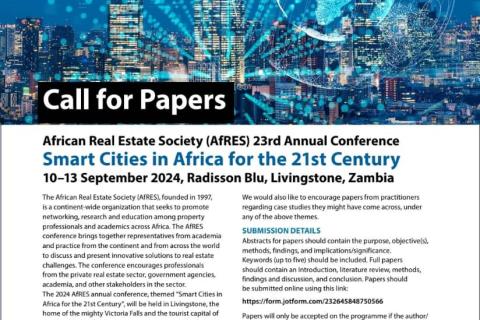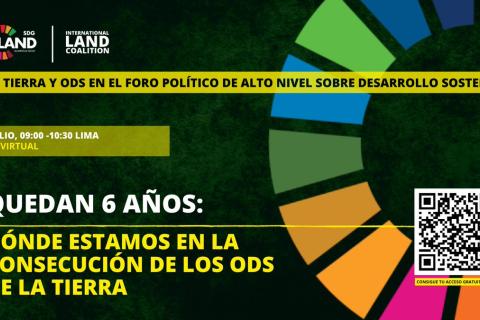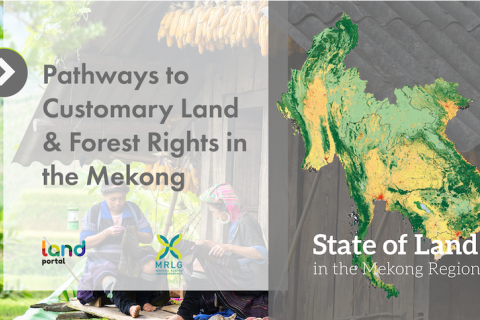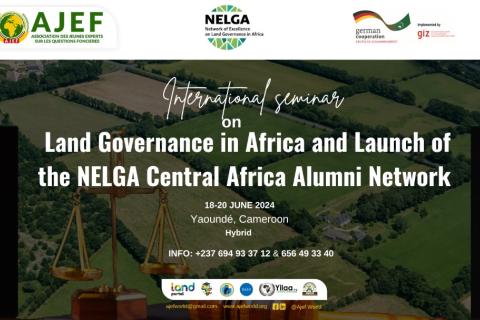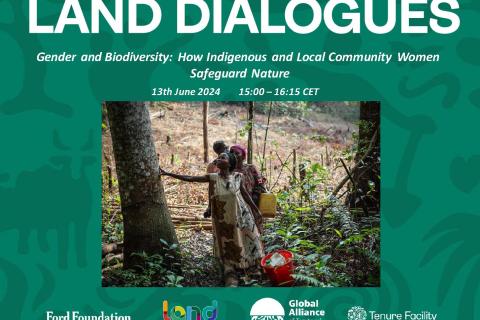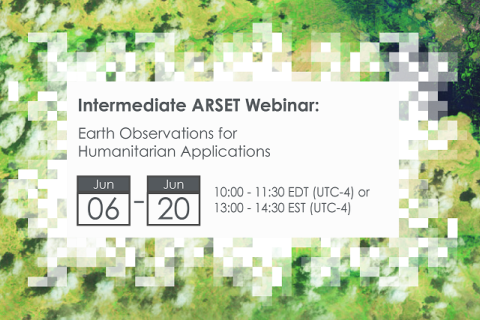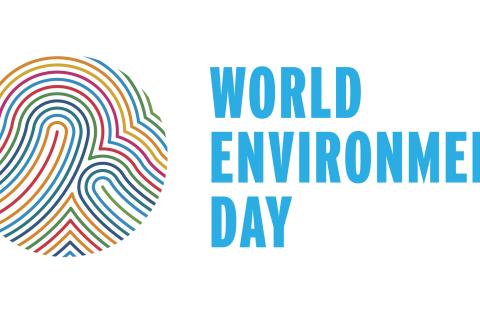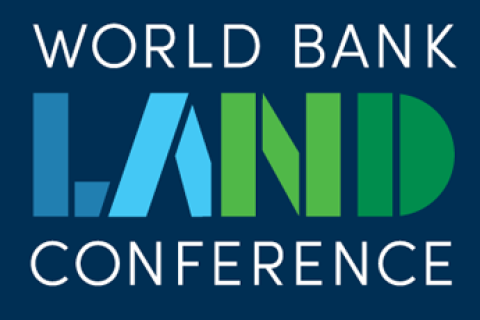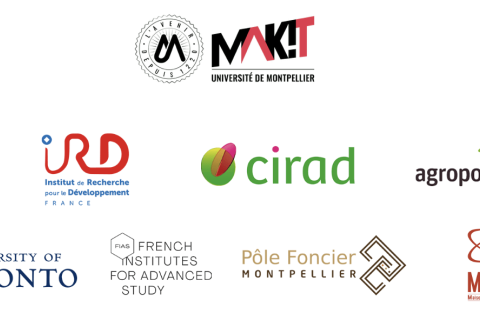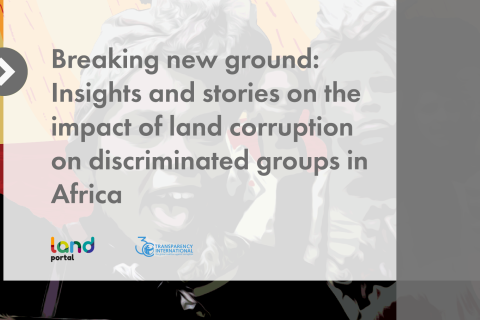Missed an interesting event or property rights? Find out the headlines and information about any past events or conferences.
African Real Estate Society 23rd Annual Conference 2024
Theme: Smart Cities in Africa for the 21st Century
Land governance and the politics of fair transitions: Deepening the search for social justice
Building on the successful collaboration in last year’s Annual Conference, the IoS Fair Transitions Platform (UU) and LANDac are pleased to launch this Call for a second joint Conference, which will have a somewhat different set-up from what you are used to and end with a Summit. We welcome your suggestions for panel sessions and round tables for the first two days. Building on your input, we will conclude on the last day with an experiment of democracy – a more-than human Summit. There will be limited hybrid options for participation in the Conference and the Summit.
Pathways to Customary Land & Forest Rights in the Mekong
The Challenges of Citizen Participation in Land Governance in 21st Century Africa and Launch of the NELGA Central Africa Alumni Network
This seminar will be an opportunity to deepen and consolidate the various issues raised in the initial contributions proposed for the collective work. Participants will have the opportunity to explore in depth the fundamental issues related to citizen participation in land governance, with a focus on the specific challenges faced in Africa. In-depth discussions will analyze the root causes of land problems, identify gaps in existing public policies, and formulate concrete proposals for effective reforms. Furthermore, the seminar will provide a platform for a comprehensive analysis of the role of alumni as an essential component of NELGA's sustainability in the sub-region and ends up with a setting up and launching of the NELGA AC alumni network
Gender and Biodiversity : How Indigenous and Local Community Women Safeguard Nature
Indigenous women’s knowledge is rooted in ancestral understanding of the natural world and the accumulation of observations of local phenomena. The most significant aspect of Indigenous women holding and preserving these traditional knowledge is their holistic approach, which encompasses a wide range of domains beyond mere specialization. They possess an intricate understanding of various species, considering their nutritional value, medicinal properties, and ecological roles. This knowledge, passed down through generations, not only enriches their communities but has been crucial for western science. Indigenous women's insights have often informed Western understandings, leading to the development of medicines and a deeper understanding of climate phenomena such as droughts, floods, and biodiversity migration.
Earth Observations for Humanitarian Applications
NASA’s Applied Remote Sensing Training Program (ARSET) has opened a new open, online webinar series: Earth Observations for Humanitarian Applications. Refugees, internally displaced people (IDPs), and other displaced populations are made more vulnerable to climate change impacts due to their socio-political marginalization. This three-part, intermediate training presents concrete strategies for mapping localized climate conditions with risks faced by refugee and IDP communities around the world.
The training will focus on flood risk assessments and specific challenges for assessing flood risk in refugee and IDP camps; gauging long-term heat stress in refugee camps and the challenges with decision making surrounding heat risk; and monitoring drought effects on agricultural landscapes in refugee settings using Earth observations (EO) to explore the correlations between anomalies in crop productivity and weather-based factors
World Environment Day
From tree planting in the Maldives and Kenya to the unveiling of large-scale city murals in the United States and activities in zoos across Ireland, Singapore and India, millions of people are coming together to mark this year’s Day.
World Bank Land Conference
|
The World Bank Land Conference has catalyzed the global land community for over 20 years, and we are pleased to announce that we will relaunch this premier event May 13-17, 2024, in Washington, DC under the annual theme of “Securing Land Tenure and Access for Climate Action.” |
Challenges of Cyber Security in Digital Land Administration: Digital security in the area of data, AI and sustainable cities
The webinar, organized by the UNECE Working Party on Land Administration (WPLA), follows a study on ecosystems and security in land administration. It explores the complex landscape shaped by global megatrends and sector-specific drivers, emphasizing the role of technology and digitalization in land administration.
Demandes de justice et traitement des injustices socio-spatiales et environnementales dans les pays du Sud/Demands for justice and responses to socio-spatial and environmental injustice in the global South
Les pays du Sud connaissent des processus forts d’exclusion foncière et d’exposition à des risques environnementaux, souvent liés à des logiques extractivistes particulièrement brutales. Face à ces situations, on observe une mobilisation croissante des concepts de justice socio-spatiale et environnementale dans les travaux de recherche visant à les décrire et à analyser les différentes formes de résistance ou de contestation qu’elles suscitent. Mais ces concepts reposent implicitement ou explicitement sur des théories de l’État et de la citoyenneté supposées universelles. Le colloque a pour objectif de confronter ces concepts aux relations sociales spécifiques entre l’Etat et les citoyens, dans différents contextes du Sud global.
Breaking new ground: Insights and stories on the impact of land corruption on discriminated groups in Africa
This webinar will explore this intersection with stories from across the continent. Speakers will show how corruption undermines land equity programs designed to address the concentration of wealth and inequality in the land sector in South Africa, and how corruption exacerbates the historical marginalization of the Nubian community in Kenya, among other examples. Speakers will also explore how governments and civil society can effectively respond to the research findings, with a focus on policies and campaigns that promote accountability and information transparency in land governance.

